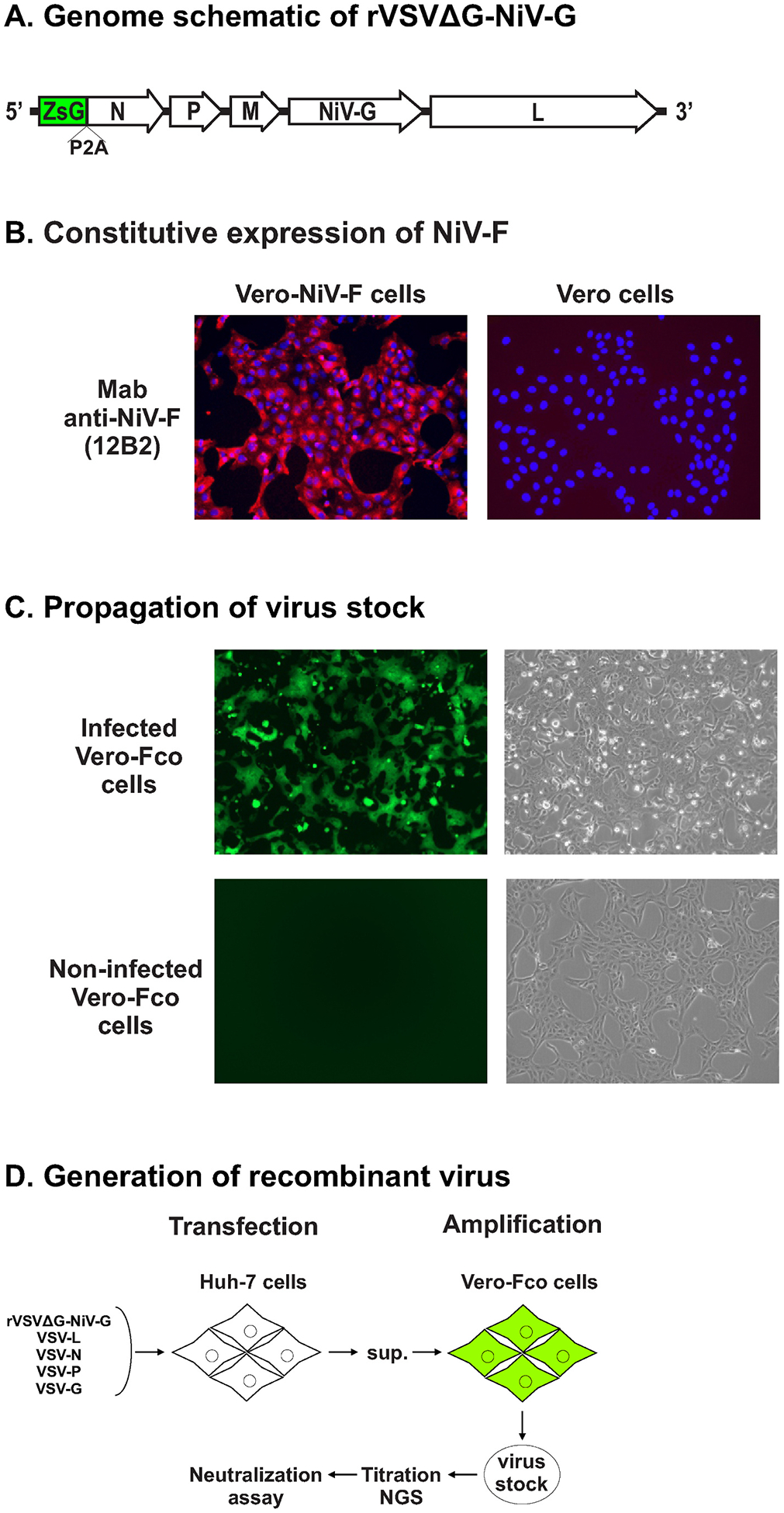Fig. 1.

Construction of recombinant rVSVΔG-NiV-G
A) Genome schematic of rVSVΔG-NiV-G: The recombinant virus contains ZsGreen (ZsG) fused to vesicular stomatitis virus (VSV) nucleoprotein (N) via a porcine teshovirus-1 2A (P2A), VSV phosphoprotein (P), VSV matrix protein (M), Nipah virus (NiV) glycoprotein (G), and VSV-polymerase (L). B) Constitutive expression of NiV–F in Vero-Fco: Continuing expression of NiV F protein in Vero-Fco cells (Welch et al., 2023) was verified by immunofluorescence assays (IFA) performed on non-infected Vero-Fco and Vero-E6 cells using anti-NiV F protein antibody (12B2). Representative IFA images (magnification 10 ×) of non-infected Vero-Fco and Vero-E6 cells collected using EVOS microscope. C) Replication of recombinant virus in Vero-Fco cells: Representative images (magnification 10 ×; EVOS microscope) of Vero-Fco infected with rVSVΔG-NiV-G or mock infected. D) Strategy to generate rVSVΔG-NiV-G: Plasmids encoding VSVΔG-NiV-G, VSV-L, VSV-N, VSV-P, and VSV-G were co-transfected into Huh-7 cells to rescue rVSVΔG-NiV-G. The supernatant was blind-passaged onto Vero-Fco cells, and the resulting virus stock was titered using TCID50 determination method and sequenced by next-generation sequencing.
